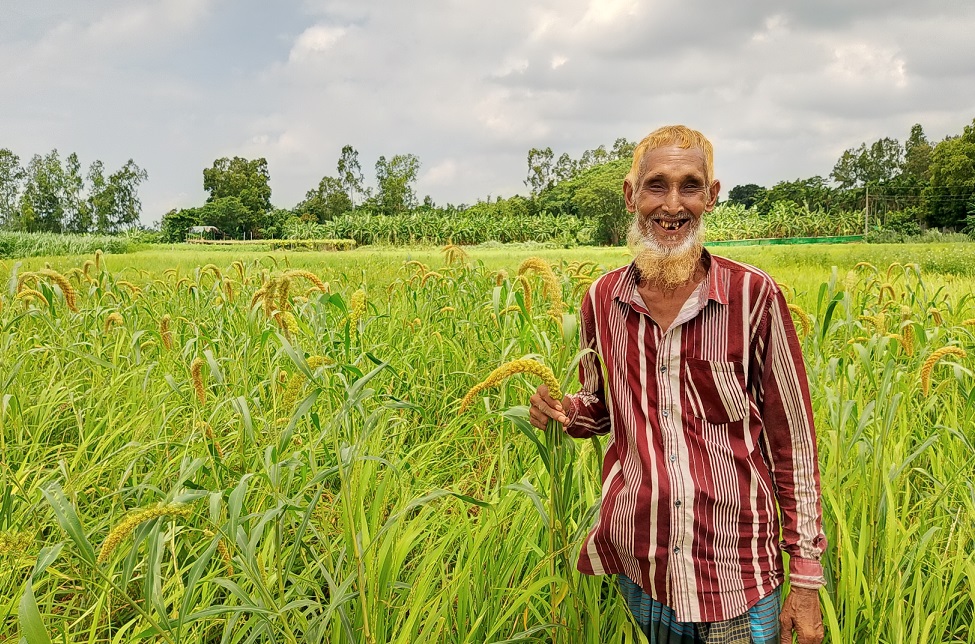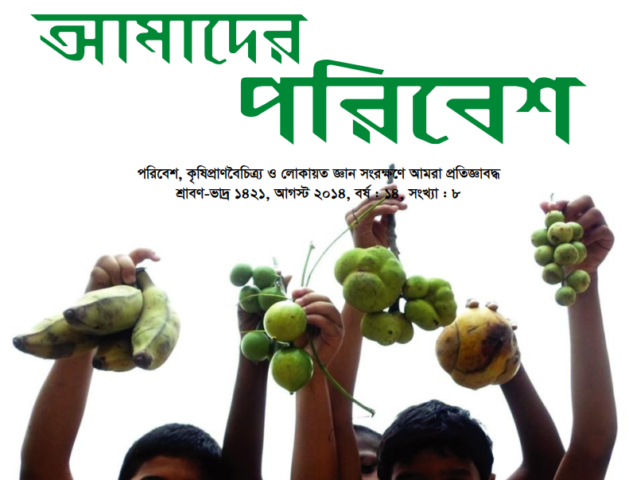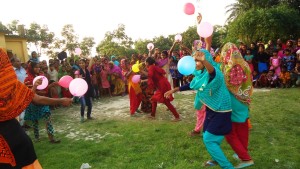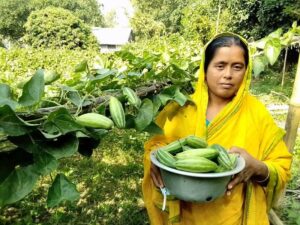Satyaranjan Saha from Harirampur, Manikganj
Abdur Razzak Bepari, a 68-year-old farmer from Algirchar village at Ramkrishnapur union, Harirampur upazila of Manikganj, has been cultivating kaun for 12 years. He conserves the seeds for planting. He grows kaun and parangi rice on the same land ensuring that he maximizes the use of his lands.
Abdur Razzak Bepari says, “BARCIK takes kaun seeds from me, and distributes among other farmers which enables farmers in various villages to cultivate kaun and aush rice. I cultivate kaun, sesame, parangi aus rice, and vegetables using completely organic methods. I do not need to spend much in this sort of cultivation leading me to be benefited from agriculture.’ He went on saying, due to the cultivation of these crops, the soil, water, air, and all living beings remain healthy and it also increases natural diversity.
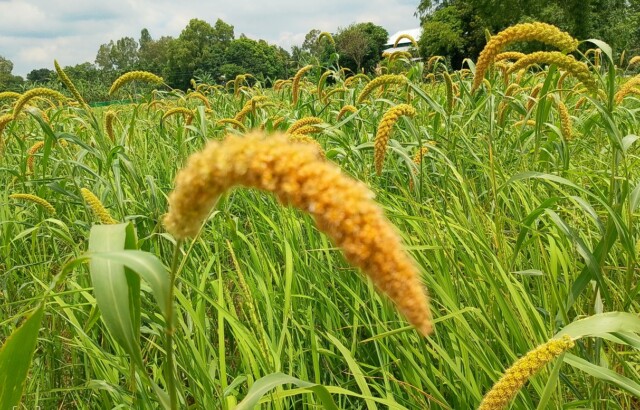
He mentioned that the native birds Babui eat the kaun from my fields. We also eat kaun-based dishes like pitha and payesh. Different kinds of insects on the land also consume the produce. With these crops, including us the other living beings also can live well.”
He mentions that the sandy loam soil along the banks of the Padma River in Algirchar yields good crops. He cultivates rice, wheat, sesame, kaun, mustard, khesari, chili, and mung bean. He does not use groundwater for cultivation of these diverse crops; he uses rainwater and dew during winter naturally. He states that by cultivating these diverse crops, they are protecting diversity.
However, Abdur Razzak Bepari mentioned in the last 10 years the farmers experienced climate induced disasters such as untimely heavy rains, droughts, and extreme heat during the months of Boishakh and Jaistha. Heavy rains flood the fields and ruin the crops, while drought burns the crops, resulting in low yields and losses for farmers. Farmers are unable to save their crops even by using groundwater during droughts, causing problems in preserving and cultivating seed diversity.
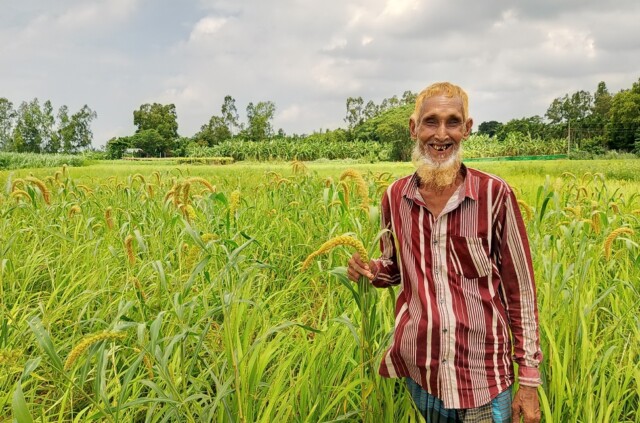
He says, “Our village’s sandy loam soil along the Padma River gets very hot under the sun. Without moisture in the soil, crops perish. Extreme heat causes various illnesses like dysentery, diarrhea, and asthma in livestock, birds, and humans. Following BARCIK’s advice, we can benefit by practicing sustainable agriculture instead of using chemicals.”
By cultivating diverse crops to combat climate change, we can all live well and protect natural diversity as well.
Translated by Silvanus Lamin

